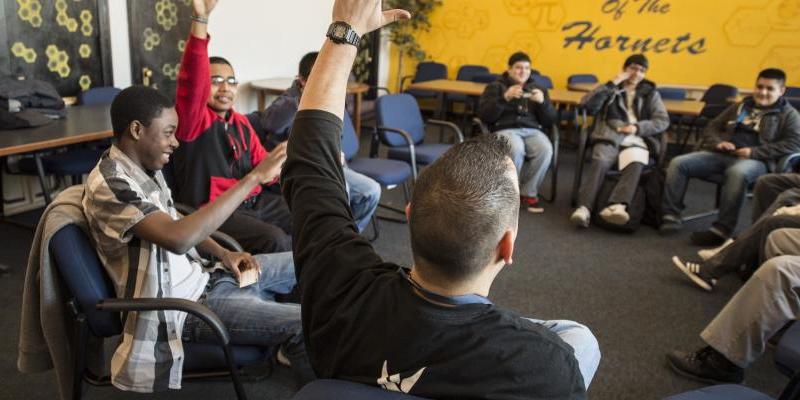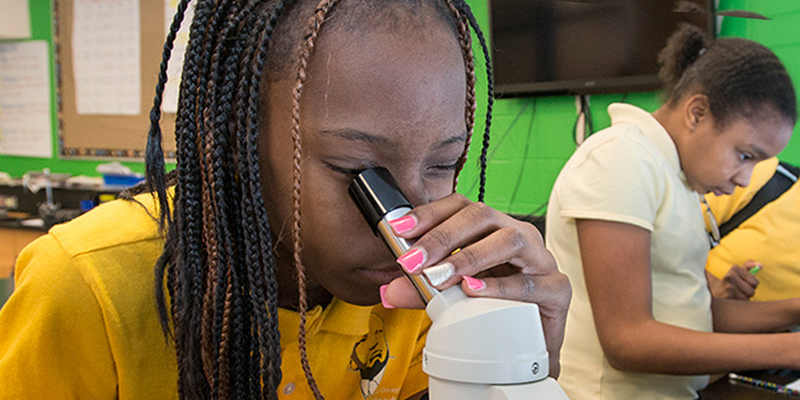Inclusive Economy Lab Cultivating Student Success in Community College
Community colleges are powerful vehicles for social mobility in the U.S., particularly for first-generation and low-income students who are more likely to enroll in community colleges than in four-year institutions. However, the majority of students who enroll in community colleges do not earn a degree within three years.
A growing body of research shows that providing holistic supports can dramatically improve associate’s degree completion. The Chicago-based nonprofit One Million Degrees (OMD) provides such supports, including academic support, financial assistance, professional development, and personal coaching to ensure academic success. The Inclusive Economy Lab is conducting an evaluation of the efficacy of OMD’s holistic approach to improving graduation rates and preparing students for professional success.
OMD is also working to scale its comprehensive supports through an innovative partnership with City Colleges of Chicago (CCC). The Inclusive Economy Lab is also conducting an evaluation of this unique partnership model.
“For me, it’s not just one thing, it’s all things. They all seem to work together. Without the development sessions, you wouldn’t have a coach, and everything touches everything. It comes full circle.”
-OMD Scholar





